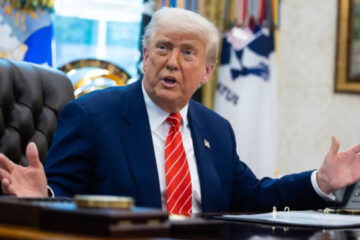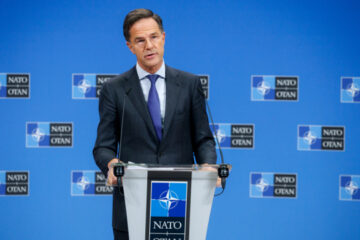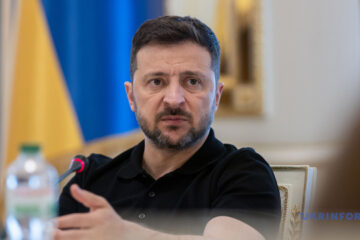
Russia’s decision to send a low-level delegation to the upcoming round of peace talks in Istanbul on June 2 signals a lack of genuine interest in meaningful negotiations and a deliberate strategy to stall the process, according to the Institute for the Study of War (ISW).
“Russian officials continue to signal the Kremlin’s uncompromising position ahead of proposed talks in Istanbul on June 2, suggesting that the upcoming Istanbul meeting is very unlikely to yield substantive results in support of an enduring peace in Ukraine,” ISW analysts wrote in their latest assessment.
As part of their analysis, ISW cited comments by Russian Permanent Representative to the United Nations Vasily Nebenzya during a May 30 UN Security Council meeting. Nebenzya claimed that Russia is prepared to fight Ukraine for as long as necessary and that Ukraine can either accept peace, presumably on Russia’s terms, or face inevitable battlefield defeat.
He also stated that the United States recently “opened its eyes” to the “root causes” of the war in Ukraine and reiterated Russian President Vladimir Putin’s demands that the West stop arming Ukraine and that Ukraine cease force generation efforts as preconditions to a ceasefire.
CEO of the Russian Direct Investment Fund and Presidential Special Representative for Investment and Economic Cooperation with Foreign Countries Kirill Dmitriev also called for officials to eliminate the conflict’s “root causes” in an English-language post to X on May 30. Russian Foreign Ministry spokesperson Maria Zakharova claimed on May 29 that Russia’s delegation to the proposed bilateral discussion in Istanbul on June 2 will be the “same” as Russia’s delegation at previous talks held in Istanbul on May 15 and 16.
“Russian officials’ decision to reiterate long-standing demands and send the same low-level delegation to the next Istanbul meeting indicates that Russia remains disinterested in engaging in good-faith negotiations. ISW continues to assess that Russia remains dedicated to protracting peace negotiations to support continued offensive operations in Ukraine and extract additional concessions from Ukraine and the West,” the report reads.
Russian officials are pocketing major U.S. concessions and continuing to make further demands of Ukraine and the West. Kremlin Spokesperson Dmitry Peskov claimed on May 30 that Kremlin officials are encouraged by the Trump administration’s understanding of Russian President Vladimir Putin’s concerns about further eastward expansion of NATO and that Russia has previously shared these concerns with the United States during closed-door negotiations. Peskov stated that the U.S. position on further NATO expansion is “very appealing” to Russia, given that the United States continues to play a mediating role in negotiations to end the war.
Russian Foreign Minister Sergei Lavrov recently proposed a second round of Russian-Ukrainian talks in Istanbul on June 2. Ukraine’s Foreign Minister Andrii Sybiha responded by urging Moscow to present its ceasefire proposals in advance, rather than delaying until the meeting.
President Volodymyr Zelensky stated on Thursday that Russia has yet to provide its ceasefire memorandum to Ukraine or its international partners. Speaking alongside Turkish Foreign Minister Hakan Fidan in Kyiv, Sybiha emphasized Ukraine’s commitment to continuing the peace talks in Istanbul—but stressed that progress depends on Russia submitting its proposals in advance, in line with earlier agreements.
Meanwhile, Peskov confirmed that Russia would attend the June 2 meeting in Istanbul, but said Moscow would not publicly share its version of the proposed ceasefire memorandum.
Source: Low-level delegation signals Russia's lack of seriousness ahead of Istanbul talks – ISW



